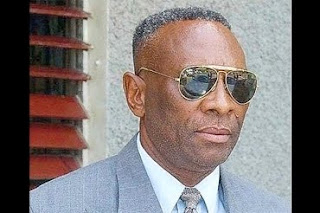THE Turks and Caicos Islands, once the envy of the Caribbean because of their thriving offshore banking, real estate and tourism sectors, are now teetering dangerously on the brink of economic stagnation, 10 months after motherland Britain suspended the Constitution and took administrative control of the territory on the recommendation of a commission of enquiry into alleged rampant corruption by the Michael Misick-led Government.
Under an interim administration headed by Governor Gordon Wetherell, the islands are experiencing the highest unemployment rate in recent history and serious declines in government revenues, even as multi-million dollar investors are in limbo awaiting approval for developments, a special investigation by the Sunday Observer has uncovered.

Incomplete construction sites and banners announcing future homes of stalled multi-million-dollar developments dot the shorelines of Providenciales, one of the eight inhabited islands in this Caribbean territory.
No one is more frustrated than Stan Hartling, a major investor on Providenciales island.
After spending several million dollars on pre-project costs for the expensive Shore Club Resort development, he is yet to receive a development agreement and construction permission to proceed.
Hartling told the Sunday Observer that he had completed the rounds of due diligence under the previous Government 18 months ago, but is once again forced to undergo a similar process under the interim administration.
"This delay has caused me millions of dollars... over $40 million in contracted sales we can't collect on because we have not received the development agreement," said the head of the Hartling Group which owns The Regent Palms and The Sands hotels.
"I have spent hundreds of thousands of dollars in environmental studies... over US$500,000 in planning fees, and Government has already taken hundreds of thousands of dollars in advanced stamp duties," he said.
In addition to providing hundreds of jobs, the resort, he argued, will also provide much-needed Government revenue.
Developments like the Shore Club resort, many islanders feel, can provide that economic breakthrough to create jobs and replenish the Government's empty coffers.
But it is anyone's guess when this project will be approved.
"What is frustrating is that it appears that the scope of the due diligence continues only to more bureaucracy and less resolution," he said.
According to Hartling, while most Caribbean governments are seeking to attract investors, he is being asked to negotiate backwards in the Turks and Caicos.
Concessions granted to developers, he argued, should not constantly be misconstrued as political favours but necessary tools to help pump necessary long-term investments.
The $75-million Regent Palms development, he argued, would not have been feasible were it not for the five per cent duty concession received.
While both his resorts account for 10 per cent of Government room tax revenues, private hoteliers like himself must still foot the bill to promote the destination since there is no government budget to do so.
"We do have a small group of dedicated hotel owners, but what is the incentive if you are watching concessions go the opposite way while watching the performance of hotels drop because there is no promotion of the country?" Hartling questioned.
Like others who spoke with the Sunday Observer, Hartling admitted the commission of enquiry was necessary, but lamented that its scope and focus are now overwhelming the country.
"What started as a focus on those with governmental responsibility is now touching practically every person on the island," he said.
"I respect that the Government has a tough job ...they come in and have honourable intentions but I can't sit back and pretend that this is not having a major impact on the country and economy," he said.
The job losses, Hartling said, not only affect labourers but highly skilled and qualified natives of the islands, known as 'belongers'.
"I see them come through my office with amazing construction and accounting degrees but there are no jobs for them," said Hartling, whose resorts currently employ close to 500 persons.
Many of the hotels, once overflowing with tourists eager to experience some of the world's best beaches, have more empty rooms than desired.
Thousands of foreign workers were either relieved of jobs to make way for the numerous unemployed belongers or have simply moved on to greener pastures.
Still, highly qualified belongers have to settle for the few US$5-an-hour minimum wage jobs.
Very few high school graduates can pursue university education as Government can no longer afford to send them abroad to study. There are no universities in the Turks and Caicos.
A country once accustomed to racking up huge bills to host massive free music festivals featuring top international acts now struggles to find money to pay its simplest of obligations.
With no available raw material to facilitate a manufacturing sector, almost 100 per cent of goods consumed by the population of approximately 35,000 are imported.
Attempts by the Sunday Observer to get a comment from the governor were not successful, and he did not respond to phone messages left by this reporter.
With the economic boom of the mid-90s expected to last for a long time, many locals got into the hospitality industry with numerous spin-off careers in construction.
But the once-vibrant construction sector is at a standstill with several projects in limbo awaiting approval from an administration which has grown increasingly rigid.
The commission of enquiry had also called into question a number of developments in
Salt Cay, Dellis Cay and Providenciales Island, three of the 40 islands and cays which make up the country.
The uber-posh Nikki Beach Resort closed suddenly. Then Dellis Cay, a nearly $1-billion development where Hollywood movie stars Catherine Zeta-Jones and Michael Douglas bought property, stalled while other luxury developments like Royal Reef, Blue, Third Turtle Club, Salt Cay and others all sit underdeveloped and indefinitely stalled.
And with the commission of enquiry report pointing out that the generosity shown in granting duty exemptions cost the Government considerable revenue loss, it is now more difficult for investors to get exemptions.
The grumbling is getting louder: from the taxi driver to the multi-million-dollar investors who have either lost or are losing millions while awaiting the green light to proceed with developments, some of which were approved under the previous administration.
Russell Garland, a real estate developer and operator of a dry cleaning business, agreed there is no concentrated effort to attract investors or sustain continued investment.
Instead, he maintained, the sole focus is on the criminal investigations of alleged acts of rampant corruption now under way.
"Every press release out of the governor's office is about the criminal investigation," he argued. "Now it seems like everyone is being viewed as a criminal."
Garland, who recently opened the islands' first commercial laundry, knows the fate of his business hangs in the balance, given the downturn in the hotel sector -- his major clients -- with him already having to slash his staff component by 25 per cent.
"There is money sitting there because I have friends who want to invest but they are watching," he told the Sunday Observer.
The governor's focus, he said, should now be on attracting new investment and not running away existing ones.
The end results of the suspension of the Constitution have left many belongers confused about Britain's interpretation of government's mismanagement.
"If it was mismanagement, money would have gone and there would be nothing to show for it... but say what you want about the past premier, he was instrumental in what happened under his regime for the last six years," he insisted.
According to Garland, Misick and his ministers were responsible for the growth the islands experienced.
And on islands where there is not even the need for traffic lights, crime is now becoming a worrying trend as more jobs are lost.
According to Garland, his dry cleaning business has been burglarised three times in two months.
Contractor Devon Williams said the stalled projects, as well as the lack of new businesses, have crushed the life out of the construction sector.
An estimated 5,000 people, many of whom worked in construction, have already left to seek jobs elsewhere.
And with less being consumed, cost of living has shot through the roof.
Lines which usually extend through supermarket doors are replaced with a trickle of shoppers, while petrol cost has increased from US$3 per gallon to close to $5 in under two years. The bank lines are empty, except for the Turks and Caicos Island Bank, where depositors gather daily to hear word of savings lost when the bank folded.
"I saw a guy yesterday who said he did not come out of his house for 12 days because he couldn't afford gas... this was a fly guy who, as a skilled contractor, cannot find work," said Williams.
Although the financial sector has been hit, jobs are lost, and even the exploration of a yacht registry to attract high-end tourism is but now a dream. Williams, though, remains optimistic that the Turks and Caicos can come back.
This, he believes, is only possible through a democratically elected government.
With talks of a July 2011 date for general elections, Williams is convinced the islands are ready to govern themselves again.
Meanwhile, John Wildish, a Jamaican real estate developer living in Turks and Caicos, said with many persons having left due to the stagnant economy, his business is seriously affected.
Rental properties which usually rake in US$2,800 monthly are now available for US$1,400.
"We need to become business-friendly and send out the message that Turks and Caicos is open for business," he said.
A lot of skilled professionals are also leaving the islands for North America in search of a better life.
"There are people who, having set up roots here for the last 10 years, have simply packed up and moved on," he said.
According to Wildish, the governor's primary focus is on righting a series of wrongs while the economy remains secondary.
"If the governor was an elected man, in order to make sure he is doing a good job with the economy he would be actively seeking investors... but I don't see an active drive to attract investments," he insisted.
Carl Simmons, president of Tropical Shipping which handles 70 per cent of imports into the country, is also affected by the stalled developments as construction-related imports account for a significant portion of his business.
"Right now only basic day-to-day food is being imported... there is nothing being imported for construction," he said.
He, too, has slashed staff by 20 per cent in addition to cutting the work hours of others.
"I have several applications from students with varying degrees who have come back from studying abroad and I just cannot hire them," he lamented.
He questioned why Britain has failed to inject capital into the territory to help.
A former director of the now defunct TCI bank, Simmons said when it was ordered closed negotiations were advanced to secure a $13-million cash injection.
"But it was so sudden... and the British Government should have stepped in to assist the bank," he said, adding that among the shareholders was the National Insurance Board.
President of the 150-member Providenciales Chamber of Commerce Tanya Parnell said the country needs the right investors to take over some of the failed projects to generate new employment.
The stalled developments are having a crippling effect on many small businesses, with some losing as much as 50 per cent of revenues.
Others are barely operating on skeleton staff while small building contractors have laid off entire teams.
"There are no new businesses coming on and the existing ones are doing no expansion," Parnell said.
Frustration is high as hopes wane that the new administration will make things better.
"No one was looking for charity or handout but what we are saying is that there has been no promotion of the island," she insisted.
"Electoral and Constitution reform are now the only focus while businesses are struggling," she maintained.
The chamber of commerce, she said, has not been able to secure dialogue with the interim administration to air its concerns and identify solutions.
"We wrote to them and they took a month to respond with nothing... so the general feeling is the interim administration itself needs to be more transparent," she said.
As for Grand Turk, where the seat of Government is sited, Parnell said the problem is worse as a lot of the residents living there are civil servants who, having had to take a 10 per cent pay cut, might lose their jobs as talks of downsizing intensify.
"And if that happens, the private sector just cannot absorb these people," she said.
Meanwhile Carlos Simons, Queen's Counsel and candidate for leadership of the Progressive National Party (PNP), said while the worldwide recession, specifically the crash of Lehman Brothers, also affected the economy, the current political situation played a major role.
The present interim administration, he believes, is not motivated to attract other projects to take the place of those which have been halted. Instead, the focus remains (solely) on restoration of good governance, stabilisation of government finances and law and order in policing.
"But if you focus only on these things, to the exclusion of jobs, then people will see deterioration in the standard of living, which is what is happening," he argued.
Simons said restrictions on some of these developments could very well be providing an atmosphere that isn't developer-friendly.
This, he argued, will only change when an elected government is back in office and, as such, he is focused on winning the leadership of the PNP.
"If I win in either capacity -- leader of the PNP or leader of the country -- it is not a one-man job, and so I would have to surround myself with people as committed as I am," he said.
Regaining investor confidence, he said, will take greater effort, but the work must begin the day the new Government is sworn in.
Shaun Malcolm, national chairman of the Opposition which was instrumental in getting the British to step in and suspend the Constitution, maintains it was a necessary action as there was breakdown in every area of Government.
According to Malcolm, the Government had not saved for the rainy days.
"The country was spending $8 to $10 million to stage a free music festival and when school open there are no chairs, no desks and no teachers," he quipped.










































































